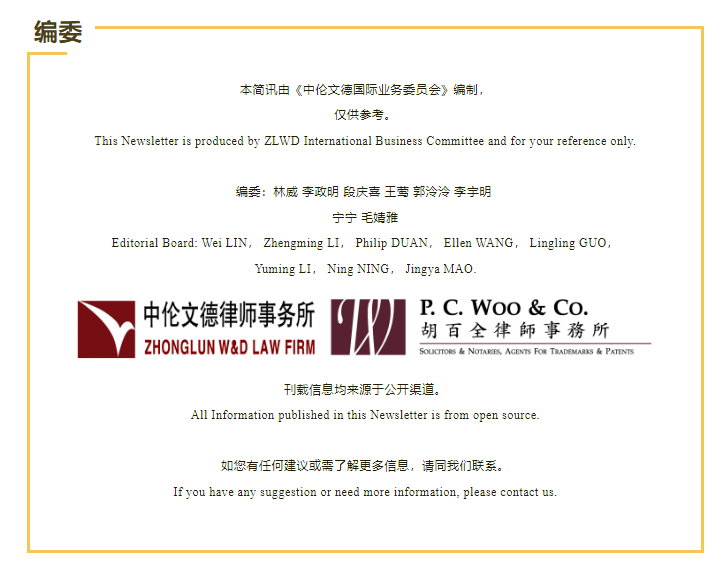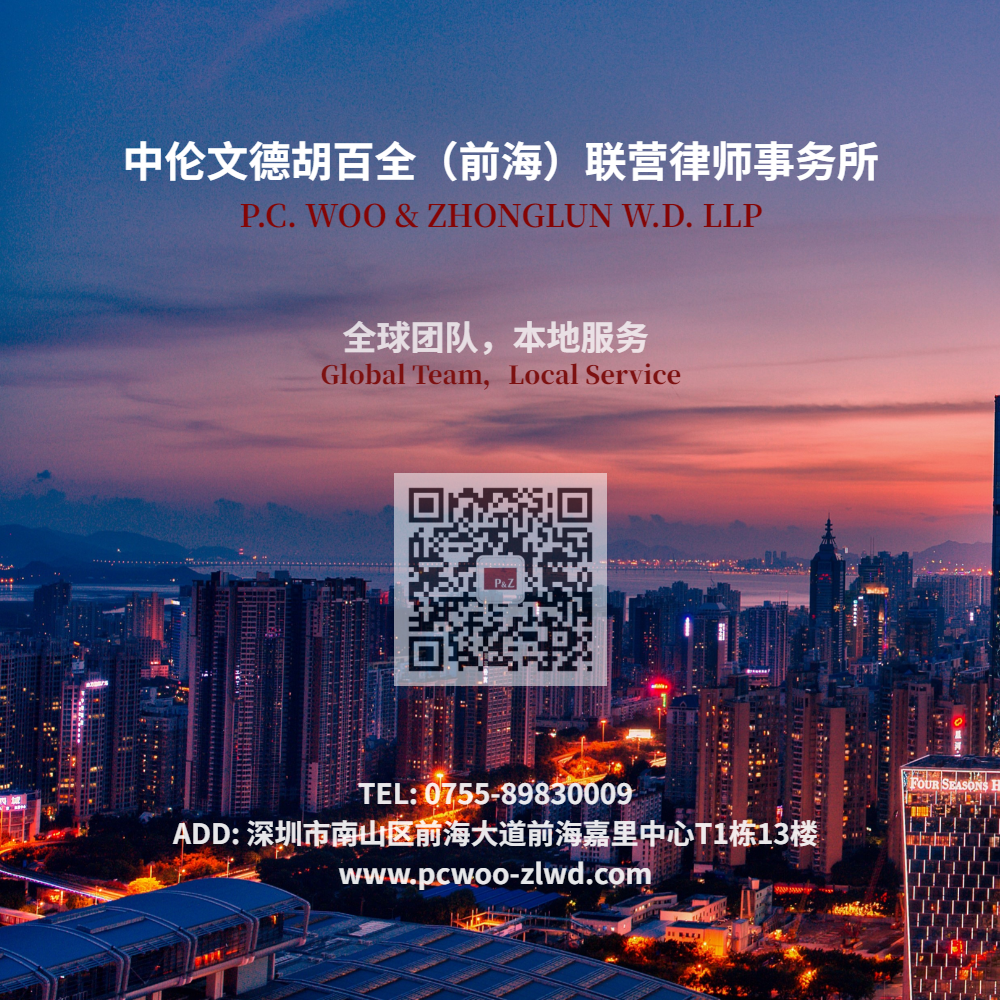
NEWS

NEWS

The First Ad Hoc Arbitration Case Concluded, and the Desensitised Award Has Been Made Public in Accordance with the Agreement
On 30 June 2023, the first ad hoc arbitration case in which the China Maritime Arbitration Commission ("CMAC") provided the necessary administrative services as an appointing authority was successfully concluded and the desensitised award has been made public as agreed by the parties.
As the first case in China to apply the China Maritime Law Association Provisional Arbitration Rules (hereinafter referred to as the "CMLA Provisional Arbitration Rules"), the validity of the provisional arbitration clause has attracted much attention. The Arbitration Tribunal, starting from the nature of the dispute involving Hong Kong, based on the fact that the parties had not explicitly agreed on the place of arbitration, and in accordance with the CMLA Provisional Arbitration Rules and taking into account that the address of the Claimant, the disputed leased premises, and the place of the hearing agreed by both parties were all located in Qingdao, Shandong province, first determined the place of arbitration to be Qingdao, China; and made it clear that arbitration procedures shall be governed by the law of the place of arbitration, namely, the arbitration law of China; then according to the the provisions of" the "the parties may choose to agree on the applicable law of the arbitration agreement of Law of the People's Republic of China on the Application of Laws to Foreign-related Civil Relations and Provisions of the Supreme People’s Court on Several Issues relating to the Hearing of Cases Involving Judicial Review of Arbitration and the fact that the parties have clearly agreed that the applicable law of the arbitration agreement is the Arbitration Law of Hong Kong, found the ad hoc arbitration clause in this case to be legal and valid.
In addition, as the first case of ad hoc arbitration in which the appointing authority provided the necessary administrative services, the status and role of CMAC in the case proceedings also attracted attention from the industry. In this case, as the appointing authority agreed by the parties, CMAC appointed the arbitrators and set up the arbitral tribunal for the case only upon the parties' application, without carrying out other procedural management. In ad hoc arbitration, as the appointing authority, CMAC did not manage the whole process of the arbitration, but only provided one or more specific management services at the request of the parties, such as appointing the arbitrators, deciding on the recusal of the arbitrators, as well as financial management of the case, and providing the secretarial services of the arbitral tribunal, so as to ensure procedural justice and guarantee the smooth progress of the ad hoc arbitration.
United Nations Conference on Trade and Development Report: General Overview of Investment Treaty Arbitration Cases in 2022
On 5 July 2023, the United Nations Conference on Trade and Development (UNCTAD) released the World Investment Report 2023, which reviews the overall picture of investment treaty arbitration (ISDS) cases in 2022.
Forty-six new ISDS cases were filed in 2022, setting a new low for the annual number of cases since 2010 and well below the average of 75 cases per year over the past decade (2012-2021). By the end of 2022, the total number of ISDS cases reaches 1,257, with a cumulative total of 132 countries and one economic grouping having been a respondent in one or more ISDS cases. As in previous years, the majority of newly filed cases (approximately 65 per cent) were filed against developing countries.
About 80% of the investment arbitration cases initiated in 2022 were brought under bilateral investment treaties (BITs) or treaties with investment protection clauses (TIPs) signed in the 1990s or earlier. The Energy Charter Treaty (ECT (1994)) was the most frequently invoked International Investment Agreement (IIA) in 2022, with 10 cases. About 20% of all 1,257 known ISDS cases at the end of 2022 were brought on the basis of the ECT (157 cases) or the North American Free Trade Agreement (NAFTA) (79 cases).
At least 44 substantive decisions were issued by ISDS tribunals in 2022, 25 of which were published at the time of writing. 10 of the published decisions primarily addressed jurisdictional issues (including preliminary objections) and the tribunals all ruled that they did not have jurisdiction; the remaining 15 published decisions addressed substantive issues, with 12 finding that the host state had breached the IIA, and 3 dismissing the investor's claims. In addition, 8 decisions were issued in ICSID revocation proceedings in 2022, all of which rejected requests for revocation.
By the end of 2022, at least 890 ISDS cases had been concluded. Of these, 37% were in favour of the host State, 28% in favour of the investor, 19% were settled between the parties, 14% were suspended, and 2% the arbitral tribunal ruled that the host State had violated the investment arbitration agreement but was not required to pay compensation.
Chinese Enterprise Terminates Investment Arbitration Case Against the Republic of Bulgaria
On 18 August 2023, the Acting Secretary-General of the International Centre for Settlement of Investment Disputes (ICSID) issued a Procedural Order noting the discontinuance of the Astronergy Solar Netherlands B.V. v. Republic of Bulgaria arbitration case.
The case was filed on 2 December 2022, the claimant is a company registered in the Netherlands, whose ultimate controller is suspected to be China's Chint Group (CHINT), the respondent is the Republic of Bulgaria, and the arbitration was initiated on the basis of the Energy Charter Treaty (ECT), with the dispute relating to the generation of electricity from renewable energy sources. Similar to countries such as Spain and Italy, Bulgaria has been the subject of several arbitration actions by foreign investors due to changes in the renewable energy subsidy regime in previous years.
Presumably, under Articles 15 and 16 of the ICSID Administrative and Financial Regulations, the claimant in this case failed to pay its arbitration fees within 30 days of the ICSID's request for an advance payment of those fees for the period between the filing of the case and the first session, and failed to do so within 15 days of the ICSID's reminder, and the ICSID therefore suspended the arbitration proceedings on 7 April.
Pursuant to article 56 of the ICSID Arbitration Rules, which applies to the termination of arbitral proceedings by a party, if a party applies for termination and the other party does not object to it within a specified period of time, the proceedings will be terminated by an order of the arbitral tribunal or by the Secretary-General of the ICSID (if the tribunal has not yet been constituted).
Beijing Fourth Intermediate People's Court:
Arbitration Clause shall be Valid Where Agreement on Arbitration Institution is Inconsistent with English and Chinese Versions
Legal Basis:
Interpretation of the Supreme People's Court on Certain Issues relating to Application of the Arbitration Law of the People's Republic of China
Article 3
Where the name of the arbitration agency provided in the arbitration agreement is inaccurate but is nevertheless identifiable, the arbitration agency shall be deemed to have been selected.
Case Description:
AIR LIQUIDE(Wuhan) Co., Ltd. (hereinafter referred to as "AIR LIQUIDE Company") filed an application for arbitration to the Beijing Arbitration Commission (hereinafter referred to as "BAC") on the basis of the arbitration clause in the Supply Agreement and Supplementary Agreement 2 to the Nitrogen Supply Agreement of FLOXAL, with Rofs Microsystem (Nanchang) Co., Ltd. (hereinafter referred to as "Rofs Company") as the respondent. Clause 17.2 of the Supply Agreement provides that any dispute arising in connection with this Agreement shall be finally determined by three (3) arbitrators appointed in accordance with the Rules of Mediation and Arbitration of the Beijing International Trade Arbitration Commission, the place of arbitration shall be Beijing and the language of arbitration shall be Chinese. The arbitration clause is written in English and Chinese. In this clause, the arbitration institution is referred to in English as "Beijing International Arbitration Centre". At the same time, Article 14.1 of the Supply Agreement stipulates that this Agreement is written in both Chinese and English and shall have the same legal effect. In case of disputes arising from inconsistencies between the English and Chinese versions, the Chinese version shall prevail.
During the arbitration process, Air Liquide Company submitted an Application for Jurisdictional Objection to BAC, claiming that the name of the arbitration institution agreed upon in the Arbitration Agreement in the Supply Agreement was inaccurate, that it was not possible to determine the specific arbitration institution, and that the parties did not reach a supplementary agreement on the selection of the Arbitration Committee after the dispute had arisen, and that, therefore, according to the Arbitration Law, the Arbitration Agreement was null and void. BAC held that where the English text explicitly agreed that the BAC was the arbitration institution, based on the parties' agreement that the two versions were identical in all material respects, it could be concluded that the Chinese version, although not clear enough, could also infer the intent to select the BAC. Accordingly, on 25 August 2022, BAC rendered a decision confirming that BAC had jurisdiction over the case.
On 16 November 2022, BAC rendered (2022) Beijing Arbitration Zi No. 3938 (hereinafter referred to as the "Arbitration Award").
On 25 May 2023, Rofs Company applied to the Beijing Fourth Intermediate People's Court ((hereinafter referred to as the "Court") to set aside the Arbitration Award rendered by BAC on the grounds that "the parties had not reached an arbitration agreement".
Rofs Company claimed that Air Liquide Company applied to BAC for arbitration in accordance with Article 17.2 of the General Terms and Conditions of the Supply Agreement, but the Beijing International Trade Arbitration Commission agreed upon in the Arbitration Agreement did not exist, and there is more than one civil and commercial arbitration commission located in Beijing, including China International Arbitration Commission. In addition to BAC, there are also the China International Economic and Trade Arbitration Commission and other arbitration commissions. Air Liquide Company's defence and BAC's decision on jurisdiction were based on the fact that the English expression "Beijing International Arbitration Centre" in the arbitration clause corresponded to the Beijing International Arbitration Centre, and that Beijing International Arbitration Centre and BAC were the same arbitration institution. However, according to Article 14.1 of the General Terms and Conditions of the Supply Agreement, in case of disputes arising from inconsistencies between the English and Chinese versions, the Chinese version shall prevail. Under this premise, the name of the institution expressed in the English version should not be used as the basis for recognising the arbitration institution.
Court’s View:
According to the Chinese version of the arbitration agreement in the Supply Agreement, the expression of the Chinese version could not fully correspond to the existing arbitration institution, so the expression of the arbitration institution in the Chinese version was indeed inaccurate, but according to the English version, it was able to point to a specific and clear arbitration institution, namely, BAC, and although the contract agreed that "if there is any dispute, the Chinese version shall prevail", both the Chinese and English versions were consistent and clear in meaning regarding the settlement of contractual disputes through arbitration, and the parties agreed that the Chinese and English versions were equally effective, and the two versions were identical in all material respects. Therefore, the Court held that, even if the Chinese version. of the arbitration agreement did not express the arbitration institution accurately enough, the People's Court should uphold the principle of recognising the validity of the arbitration agreement and supporting the parties' choice of arbitration to resolve contractual disputes, and explore the parties' true intention through the English version of the arbitration agreement, and that since the English version of the arbitration agreement was capable of pointing to a clear arbitration institution, it should be held that the parties had chosen the arbitration institution. Accordingly, it should be concluded that the parties to the arbitration agreement in the case of the arbitration institution chosen BAC. The arbitration agreement has the meaning of requesting arbitration, arbitration matters, selected arbitration commission, in line with effective elements of the arbitration agreement under Article 16 of the Arbitration Law, the court did not support the claim of cancellation of the arbitration award on the ground that there was no arbitration agreement.
In conclusion, in accordance with Articles 58, 60 of the Arbitration Law of the People's Republic of China, the Court ruled to reject the application of Rofs Microsystem (Nanchang) Co., Ltd. to set aside the Arbitration Award made by the Beijing Arbitration Commission.
The Court of Appeal of the High Court of Hong Kong:
Based on the Principle of Prohibition of Double Enforcement, Parties may not Bring Enforcement Proceedings in Both Hong Kong and the Mainland in Respect of the Same Mainland Award
Case Description:
In 2008, Century Science & Technology Investment Corporation (hereinafter referred to as "Century Company"), Century Epitech Co. Limited (hereinafter referred to as "Century Epitech Company") and Mr Gao entered into a contract under which Century Company provided Century Epitech Company with a loan of 530 million yuan, which was guaranteed by Mr Gao. Clause 11 of the Agreement contained an agreement for arbitration by South China Sub-Commission of the China International Economic and Trade Arbitration Commission【It changed its name to South China International Economic and Trade Arbitration Commission"(“SCIA”) with effect from 22 October 2012.】. As Century Epitech Company and Mr. Gao failed to repay the loan, Century Company applied to SCIA for arbitration on 4 April 2013. Century Epitech Company and Mr Gao disputed the jurisdiction of SCIA, but was rejected. On 22 August 2013, SCIA rendered an award (hereinafter referred to as the "Arbitration Award"): a. SCIA has jurisdiction; b. Century Epitech Company and Mr. Gao repaid the Century Company RMB530 million, together with corresponding interest and compensation. Century Epitech Company and Mr. Gao did not apply for the setting aside of the Arbitration Award but did not make any payment under the Arbitration Award. On 13 March 2015, the Century Company instituted an action in the Mainland to enforce the Award. 4 On 16 March 2015, an Enforcement Judgement was granted by the Shenzhen Intermediate People’s Court ("SIPC"). On 29 July 2019, the Century Company issued an ex parte summons in the Court of First Instance ("CFI") in Hong Kong under s.92 Arbitration Ordinance (Cap. 609) to enforce the Award in the same manner as a judgment of the Court to the same effect, and to enter judgment in terms of the Award. On 21 August 2019, the Judge made an order granting leave ("HCCT Order").
Century Epitech Company filed an objection with the SIPC, which was rejected, and then filed a reconsideration with the Guangdong Higher People's Court ("GDHPC"), which rejected Century Epitech Company's request for a reconsideration of the SIPC's decision on 25 October 2019. The summon of Century Epitech Company and Mr. Gao filed on 30 October 2019 to set aside the HCCT Order. On 21 February 2020, the SIPC confirmed that enforcement was complete and on 7 May 2020, the Judge set aside the HCCT Order (hereinafter referred to as the "Set Aside Decision"). On 21 May 2020, the Century Company issued a summons seeking leave to appeal from the Set Aside Decision, on 23 June 2020, the court gave the Refusal of Leave Decision refusing leave to appeal the Set Aside Decision, found that at the time of the Applicant’s ex parte application under s.92, the Mainland enforcement proceedings were ongoing, and the amount recoverable could not be ascertained, therefore, there was a clear infringement of the prohibition against double enforcement set out in s.93.
On 13 July 2020, the Century Company filed a Notice of Appeal to High Court of Hong Kong for an order to set aside the Refusal of Leave Decision, the Century Company argued that the Judge erred in holding that, if an award holder has applied for the enforcement of a Mainland award, it is debarred from applying for recognition of the award in Hong Kong at the same time; on its proper construction, s. 93 AO did not debar an award holder from applying for recognition of the Mainland award by way of a Hong Kong judgment. Instead, it only debarred the execution of such a Hong Kong judgment while the execution of the award in the Mainland is taking place.
Court’s View:
First, the Century Company had never purported to draw a distinction between “recognition” and “execution” when the matter went before the Judge prior to the Set Aside Decision. It would appear that such a distinction had not been alluded to in the application to the Judge for leave to appeal as well.
Second, the Century Company accepts that “no distinction had been drawn by the legislature between the recognition and execution stages of the enforcement of arbitration awards when enacting s. 93 [AO]” in Skeleton Submissions.
It is clear from the terms of the ex parte summons that the Century Company was not just seeking “recognition” -- it was explicitly seeking leave “to enforce the Award” and the HCCT Order entered judgment in terms of the Award, expressly specifying the sums for payment which the Century Company asserted it could enforce against the Century Epitech Company and Mr. Gao even though it was then undertaking enforcement proceedings on the Mainland, thus falling squarely within the prohibition in s.93 AO.
In summary, the Court of Appeal of the High Court of Hong Kong dismissed the application of Century Science & Technology Investment Corporation to set aside the Refusal of Leave Decision.


